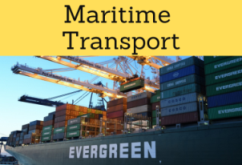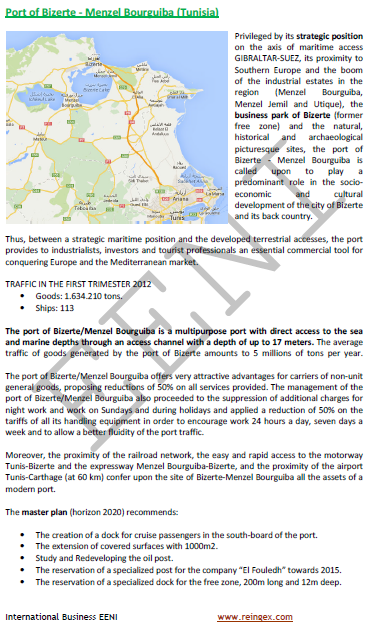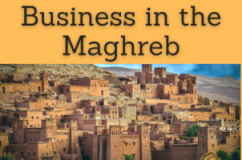Ports of Tunisia

Tunisian Ports, Goulette, Sousse, Sfax, Gabes, Zarzis, Bizerte
- Introduction to the Tunisian ports
- OMMP (Merchant Navy and Ports Office)
- Ports of Goulette, Rades, Bizerte, Sousse, Sfax, Gabes, and Zarzis

Maritime Transport in Africa (Maghrebian Ports).

The Subject “Ports of Tunisia” belongs to the following Online Programs taught by EENI Global Business School:
Logistics Courses: Transport in Africa, Maritime Transport.

Course: Business in the Maghreb.
Masters: Transport in Africa, Business in Africa International Business, Foreign Trade.
Doctorate: Islamic Business, African Business, Global Logistics, World Trade.
Languages:  or
or  Ports de la Tunisie. Summaries in
Ports de la Tunisie. Summaries in  Puertos de Túnez
Puertos de Túnez  Portos da Tunísia.
Portos da Tunísia.
Sample - Tunisian Ports


Tunisian ports.
The Merchant Navy and Ports Office is the port authority of the Tunisian ports managing the seven Tunisian ports (1300 kilometers in the Mediterranean Sea): Goulette, Rades, Bizerte, Sousse, Sfax, Gabes, and Zarzis.
Port of Radès:
- Container traffic (79% of the Tunisian traffic)
- Rolling units (76% of the Tunisian traffic)
- Port of La Goulette Extension
Port of La Goulette (Tunis).
- Cars, cereals
- Passengers
Port of Bizerte - Menzel Bourguiba.
- Access to the Suez Canal (Egypt) and Gibraltar (Europe/Spain)
- Bizerte Business Park
- Petroleum, cement, textile, food processing, and leather
Port of Sousa
- Cereals, hydrocarbons, solid, and liquid bulk
- 544,000 tones
Port of Sfax
- Solid bulk: cereals and phosphates
- Traffic: 991,000 tones
Port of Gabes:
- Commercial and industrial port
- Chemical products
- Bulk traffic
Port of Zarzis:
- Farming and fishery products, salt, and petroleum
Tunisian Ports belongs to the Maghrebian Economic Area (Islamic Civilization and African Civilization).
Trans-African Corridors related to the ports of Tunisia:
- Cairo-Dakar Corridor
- Algiers-Lagos (Feeder)
More information about Tunisia (EENI African Business Portal).

(c) EENI Global Business School (1995-2024)
We do not use cookies
Top of this page



